Under-explored Basins in the Mediterranean Region and Unconventional Plays in North Africa
Wednesday, 14 September 2022, 1:30 p.m.–3:00 p.m. | Tunis, Tunisia
This panel will address the key technical and commercial questions pertaining to the overall exploration potentials and future role of under-explored basins in the Mediterranean region as well as the unconventional plays in North Africa. Several large basins in the Mediterranean region have seen very little exploration activities, or witnessed recent change in exploration paradigm (e.g., basins offshore Algeria, Tunisia, Libya, Egypt; the Levant Basin, the Adriatic and Ionian Seas). In addition, developing vast shale gas reserves in North Africa became particularly relevant since the global demand and prices of gas increased a lot, particularly in recent times (e.g., Paleozoic Ghadames Basin – Algeria-Tunisia-Libya, up to 250,000km2, Late Silurian Tannezuft and the Frasnian Aouinet Aouinine Formations with an average organic-rich net thickness of 30m to 80m, at 2500m to 4000m depth, and TOC of 3% - 25%).
Oil and gas have been explored and produced for years in the onshore margins of the Mediterranean Sea. Since the 1960s the offshore E&P activity has been successfully and progressively increasing in several basins, such as Nile and Ebro Deltas, the Adriatic and Ionian Seas, offshore Libya and Tunisia and more recently offshore Egypt, Cyprus and Lebanon, where several giant gas discoveries have been made with reserves in excess of 5 TCF each (estimated overall reserves >65 TCF). Other offshore areas have also been promoted for E&P such as the Albanides, Hellenides, Tunisia and Algeria. Thus, a wide variety of petroleum systems with significant potential has been proven, including source rocks and reservoirs ranging from Mesozoic to Cenozoic ages. The massive Messinian salt interval – still subject of controversy – and the deep water depths frequently hamper pertinent evaluations of the hydrocarbon potential, and leave several regions under-explored. Technology advances such as subsalt seismic processing and imaging – e.g., direct hydrocarbon indicators (DHI) – , numerical and analog modeling methods, as well as drilling and production technologies in deep waters, together with the market increasing demand have started recently to attract exploration interests, leading to better understanding of the regional tectonic and stratigraphic frameworks and a better assessment of the remaining potential in the Mediterranean region.
The adjacent North Africa region hosts as well vast potential Paleozoic unconventional hydrocarbon plays (e.g., >700 TCF of OGIP in Algeria, 132 TCF in Tunisia; EIA, 2013). Mesozoic plays (particularly oil-prone) include the Albian, Fahdene (3% TOC) and Early Turonian, Bahloul (6% TOC) Formations in the Tunisian Pelagian Basin. The Early Eocene (Cenozoic) Bou Dabbous Formation (TOC of 0.4% to 4%), generates 18˚ to 53˚ API oil. Yet these and other similar plays in North Africa remain very challenging, particularly in terms of predicting: thermal maturity, total organic carbon content, reservoir thickness distribution, reservoir mineralogy (clay types, quartz content), reservoir homogeneity and the amount of adsorbed and free gas fractions within the pores and fractures. In addition, other practical challenges related to production and surface infra-structures (e.g., availability of extensive, cost effective surface and processing facilities, the South Tunisia pipeline has a capacity of 10MMm3/day). These challenges result in large uncertainties with respect to commercial production rates for the shale gas plays. While the amendments of policies of most North African NOCs could encourage industry investments in unconventional exploration, the technical E&P challenges still need to be addressed.
Moderators
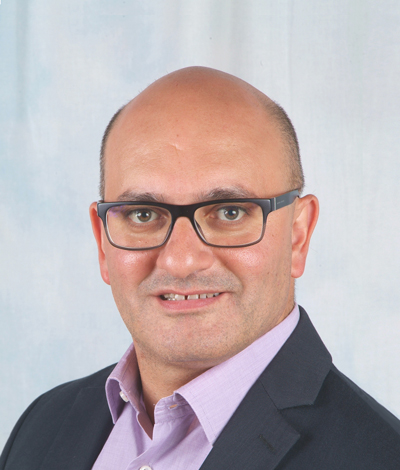 Fadi Nader
Fadi Nader
Project Manager, IFP Energies Nouvelles
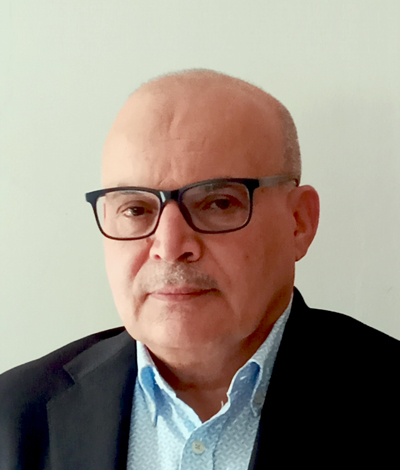 Habib Troudi
Habib Troudi
Senior Explorationist,
ETAP
Speakers
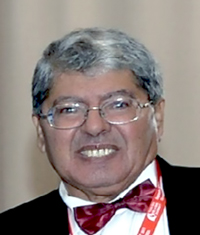 Ali Gaaya, Hydrocarbon E&P International Consultancy
Ali Gaaya, Hydrocarbon E&P International Consultancy
Ali Gaaya graduated as a Geologist Engineer, followed by an Engineering degree in Geophysics from the French Institute of Petroleum.
He is a successful and experienced Geoscientist who has been involved with Tunisian and International oil and gas exploration and development projects for over 40 years. His previous employers include Teico, Range Petroleum, P.A Resources, Etap, Total, and Serept. He has an extensive experience in a wide range of onshore and offshore Petroleum Provinces in North Africa, the North Sea and West Africa, and occupied various technical and managerial positions. Mr Gaaya spent 10 years as a Senior Geoscientist, working for the French Major Elf-Total subsidiaries in Norway, the Netherlands and France. Since 2000, Mr Gaaya works as an international Consultant and gives several G&G lectures at different engineering schools and a training Institute, focusing on applied Geophysics & unconventional hydrocarbons & reservoirs.
Mr Gaaya is a member of several professional and social Associations, participates as a speaker in various Conferences, and publishes numerous scientific papers addressing various technical topics, including “shale Oil & Gas and Unconventional Reservoirs”.
He realized, as a co-author, a book entitled “Rétrospective du secteur tunisien de l’énergie” published in 2018, which constitutes an important reference in the energy sector, and which will be updated regularly.
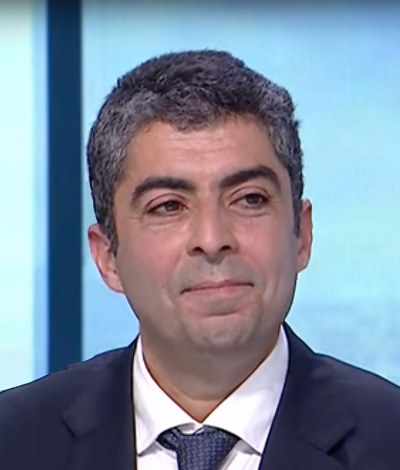 Hichem Mansour, President, Tunisian Energy Society
Hichem Mansour, President, Tunisian Energy Society
Started in the Oil & Gas industry upon graduating from the Tunis National Engineering School, when recruited by Schlumberger. He then held various field and management positions when moved to Paris then Dubai as part of the company’s A&D services. He was In charge of the water and carbon sequestration group in North Africa until 2008, appointed as Tunisia General Manager, leading over 500 employees and working with major stakeholders. In 2012 transferred to Abu-Dhabi-UAE to hold a regional lead role for integrated projects before setting up Al-HOSN Energy consulting in 2016, Innovative Production Services in 2018.
Hichem completed a Master of Science at the Heriot-Watt University in the UK in 2015 and is currently the president of the Tunisia Energy Society (TENS), Hichem is a former SPE and AIPN member.
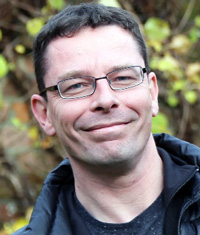 David Moreton, Supervisor Eastern Mediterranean, ExxonMobil
David Moreton, Supervisor Eastern Mediterranean, ExxonMobil
Dave received a bachelor’s degree in geology and geography and a doctorate degree from the University of Leeds, specializing in the characterization of alluvial architecture using physical models, subsurface data and field analogues.
Following his Ph.D. in 2001, Dave joined ExxonMobil International Limited in the UK, before transferring to the Mobil North Sea production team. Dave then moved to ExxonMobil Upstream Research Company in Houston, where he was involved with research into new stratigraphic concepts and the delivery of in-house technical training. Between 2008-2013 Dave transferred to Imperial Oil in Canada and led the Oil Sands Exploration team and has published on Characterizing alluvial architecture of point bars within the McMurray Formation, Alberta, Canada, for improved bitumen resource prediction and recovery.
Throughout Dave’s career he has held various technical, planning and supervisory positions in Exploration, Development and Production. Dave has successfully led teams in the start-up and execution of international Joint Venture operations, including the oversight of key seismic and drilling operations for both conventional and unconventional plays.
Since 2013 Dave supervised various teams responsible for the Middle East, China, and South and East Africa. Currently, Dave supervises the Exploration team responsible for ExxonMobil’s East Mediterranean assets and new opportunities.
- Pricing:
- Included with registration
- Room Assignment:
- Laico Tunis Spa and Conference Center
Venue
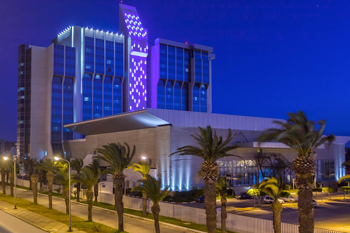
Laico Tunis Spa and Conference Center
Mohamed V Avenue, Human Rights Square
Tunis,
Tunis
1001
Tunisia